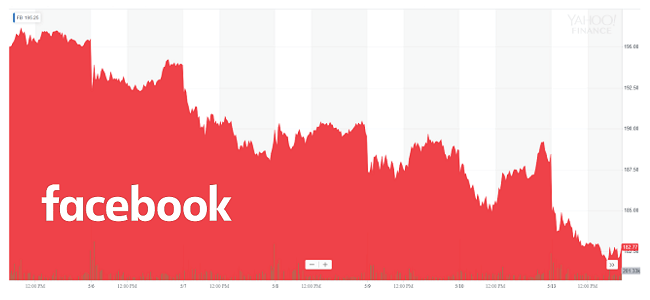
Republished courtesy of the National Post
by Tom Bradley
It’s one of the hardest decisions an investment manager has to make.
What to do with a stock that’s been hit hard by unexpected bad news? The price is down 10-20 per cent at the opening. The company is going to be the lead story on the business news for weeks to come. And there’s pressure from partners and clients to decide — sell, hold or buy more.
I’m going to dissect why this situation is so difficult, but first I want to repeat something I’ve said before in this space. The news of the day, while sometimes interesting, rarely has a meaningful impact on the long-term value of a portfolio.
A stock may react to a good (bad) earnings release or high-profile contract win (loss), but it’s usually temporary. That’s because a company’s value is based on a future stream of cash flows, a small portion of which is attributable to the next few years, let alone next few quarters.
But we have three situations today where corporate news could have a profound impact. Boeing, Facebook and SNC-Lavalin have jolted shareholders and are all over the headlines.
Under the microscope
There are several reasons why these stocks are so hard to deal with.
First, they’re already down significantly, so there’s no freebie here. You can’t rewind the clock and get ahead of it. If you’re the analyst covering the stock, you need to dig in and re-assess, no matter what else was on your calendar. And you’re doing the work when the news is highly charged and everyone else is doing the same thing.
You need to weigh how significant the new information is. Is it temporary or does it strike at the heart of your investment thesis? Does it foreshadow other skeletons in the closet? And ultimately, does the new price level fully (or partially) reflect the news, or has the stock over-reacted.
Negative bias
In times like this, it’s hard to be objective. The stock is unpopular, and the focus is on what else can go wrong. My former partner used to say, “We know what the warts are ... they’re in plain view ... we have to look harder to find the positives.”
History reminds us that, despite one-sided news coverage, these hot button stocks are complicated. In 2015, Volkswagen’s unethical behaviour around emissions testing was front page news for months. I heard friends say they’d never buy another VW or Audi. But within a year, the company was back duelling Toyota for the lead in global auto sales.
When Samsung’s Galaxy smartphone proved to be combustible in 2016, its reputation was in question, but the concerns didn’t last long. The stock went on a run for the next two years and the company is still the world’s leading cellphone manufacturer.
And when a CBC report raised allegations of over-aggressive sales practices at TD Bank in 2017, there were questions as to whether TD’s trusted position with Canadians had been tarnished. The previous year, Wells Fargo, a U.S. bank, was knocked off its pedestal by fraud charges related to their sales practices. TD, however, continued to operate on cruise control.
Unfortunately, not all situations resolve themselves so favourably. Shareholders of BP (the Deepwater Horizon oil spill) and Manulife (losses on guaranteed products during the financial crisis) are still feeling the pain.
Long memory
The toughest part of these decisions, however, is the client. These stocks are lightning rods and they create a no-win situation. Clients read the negative stories and see the decision as being automatic — “Get me out.” To be sure, selling has the least reputational risk. Just take the heat and move on.
However, if your analysis dictates that you hang on and the stock goes lower, it’s unforgivable. I know from personal experience; these mistakes are never forgotten. Even if the stock eventually recovers lost ground, clients are still unhappy. Kudos only come if it becomes a star again.
The expectations around these decisions are a big part of why it’s so difficult. It may be a great time to buy but circumstances dictate otherwise. Not only are you time constrained, but everyone is watching, the news flow is decidedly negative and your personal outcomes (read: career) are skewed to the downside. A hard decision indeed.
We're not a bank.
Which means we don't have to communicate like one (phew!). Sign up for our blog to get the straight goods on investing.

